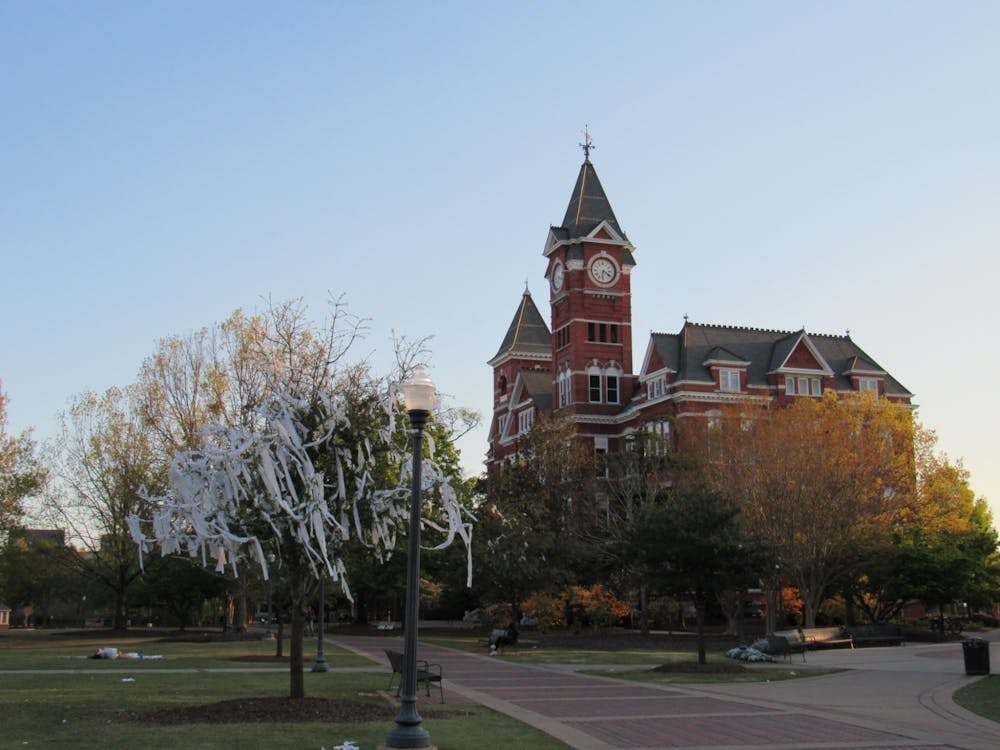On behalf of the team that delivered a winning submission for the 2022 Active Minds Healthy Campus Award, congratulations to you, the reader of this article, for being a part of this recognition.
Why you? Because by reading this article, you are undoubtedly part of the Auburn Family. This award would not have been possible without each of us, whether you are a student, faculty, staff, a guardian of a student, or an alumnus.
Although health encompasses many domains (nine, in fact, according to Health Promotion & Wellness Services, or HPWS), our submission to Active Minds focused on mental and emotional well-being. After all, Active Minds, Inc. is a national organization that is “changing the conversation about mental health” on college campuses.
Heading into its 20th year, Active Minds is the premier organization impacting young adults and mental health. Now on more than 600 campuses, it directly reaches more than 1.9 million students each year through campus awareness campaigns, events, advocacy, outreach and more.
Auburn’s own chapter has been historically recognized as a “Chapter of the Year” and has had its students represented on its National Student Advisory Board. It is significant that an organization its stature would recognize Auburn University for its efforts to prioritize and perpetuate conversations about mental and emotional health on our campus.
Most university and college counseling centers across the country are reporting large increases in the demand for their services over the past decade. Auburn is among that majority.
Although the staff at Student Counseling & Psychological Services (SCPS) has more than tripled compared to a decade ago, the demand for services from that office has outpaced the center’s expansion. In 2015, the Student Government Association commissioned a Mental Health Task Force to determine innovative ways to address the increased demand for counseling services. It determined that building a campus community that proactively communicated the need for all of us to address mental and emotional wellness together, that all of us are stakeholders in that endeavor, would be the key to addressing the demand.
Taking its name from our Creed, the A Sound Mind (ASM) initiative was born out of that idea, and it sought to educate everyone — faculty, staff and students and their family members — about the importance of intervening to protect the mental and emotional health of their fellow Auburn Family members. With the support of a second SGA Task Force formed in 2020, 12 unique offices on campus have been working together to build ASM ever since.
According to Active Minds, 67% of college students who are experiencing a mental health crisis reported that they would go to a peer for help before anyone else. Thus, more and more students are finding the need to assist their friends with disruptions to their mental and emotional health.
A greater number of faculty and support staff on campus have reported having to assist students in distress, whether that involved helping students connect to clinical services or working around assignment deadlines. Guardians of students have consistently contacted SCPS, HPWS, Auburn Cares and Parent and Family Programs for advice on how to assist their children.
With full support from the leadership team of Student Affairs, ASM was created with the recognition that promotion of mental and emotional wellness needed to exist outside of SCPS. Specifically, it recognized that education and specialty services needed to be delivered directly to students, faculty, staff and families to assist them in helping each other, rather than solely relying on people accessing SCPS for help — often well after the impact of mental health disruptions have intensified.
ASM has sponsored “Mental Health Training Days” one-to-two times per semester to train the Auburn Family on suicide prevention (using Question, Persuade, Refer training), how to help a fellow student in general (using Validate-Appreciate-Refer training), how to prevent sexual assault and dating violence (Green Dot) and an overview of the ASM initiative.
In 2020, clinicians at SCPS have partnered with each of the student-led councils of all the colleges on campus, developing wellness programming unique to each college or school; for example, the Graduate School has hosted discussions on imposter experience, and the College of Architecture, Design, and Construction has developed with SCPS a presentation on how good mental health improves creativity. HPWS debuted Wellness Coaching, a weekly peer-to-peer program helping students explore strengths while focusing on health and well-being using the Nine Dimensions of Wellness. ASM has also partnered with the Office of Inclusion and Diversity to create “brave spaces” for students of color, international students, and the LGBTQ+ community to talk about the impact of how culture intersects with environment and how the mental health of diverse communities are affected. The Black Experience (BE) group led by clinicians at SCPS is one such example that stands out.
ASM is also collaborating to address areas of need that affect large groups of students, including food insecurity through the Nutrition Resource Center and loneliness/lack of belonging using the Nod smartphone app, among many others.
Certainly, there remains work to be done to build a campus with the most accessible and effective resources to proactively address mental and emotional health. SCPS and HPWS can continue to benefit from the hiring of more counselors, psychiatrists, and health promotion experts. These offices can continue to find innovative ways to meet student demand with a staff that reflects the diversity of Auburn’s student body.
ASM can continue to evolve its website and communications strategy to ensure that every member of the Auburn Family knows it exists. There are certainly members of the Auburn Family that are not informed of the many resources on campus that are available to address mental and emotional well-being. Still, this award helps to confirm the good work happening on campus by all of us to ensure that everyone in this big, diverse family feels supported.
Do you like this story? The Plainsman doesn't accept money from tuition or student fees, and we don't charge a subscription fee. But you can donate to support The Plainsman.
Dustin Johnson is the assistant director for outreach and campus mental health initiatives at Auburn University Student Counseling & Psychological Services.





